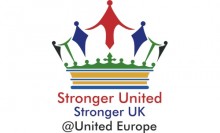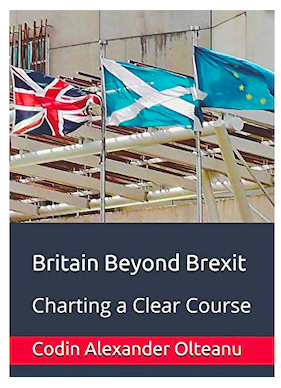Geoffrey Howe, former Chancellor of the Exchequer, Foreign Secretary and Deputy Prime Minister during the government of Margaret Thatcher, wrote in 2013 in a scathing critique of his party’s current leaders’ position on Europe that:
"...the Conservative party's long, nervous breakdown over Europe continues and what is essentially a Tory problem is now, once again, becoming a national problem… the prime minister has opened a Pandora's box politically and seems to be losing control of his party in the process. The ratchet-effect of Euroscepticism has now gone so far that the Conservative leadership is in effect running scared of its own backbenchers, let alone Ukip, having allowed deep anti-Europeanism to infect the very soul of the party."
Jeffrey Howe was right. The terrible predicament in which Britain and the European Union find themselves today because of the Brexit referendum is the direct result of the internal struggles of the British Conservative party. Ever since Britain joined the European Economic Community in 1973 the Tory party has been divided in three groups fluctuating in size: the first was the Europhile ‘Ted Heath group’ led by Britain's former Prime Minister who engineered the UK's adherence to the EEC. Today this group has almost died out and is represented only by a few senior retired or semi-retired politicians like Michael Heseltine and Kenneth Clark. When Margaret Thatcher defeated Ted Heath for the leadership of the Tory party in 1975, a key element in her winning strategy was endorsing a more ‘euro-realist’ approach based on a transactional view of the EEC, based on the principles that the UK should not pay into Europe more than it got out of it, and that it needed to maintain its sovereignty embodied in its Parliament, courts of law, security services and military forces. Thatcher articulated this doctrine in her famous 1988 Bruges speech to the College of Europe that still serves as the standard for the euro-realist Tory group that dominates today the Tory party.
This group until recently led by David Cameron, George Osborne, Michael Grove, and Boris Johnson – we could call them Thatcher’s grandchildren - is by no means a uniform and cohesive group. The main objective of these leaders is a struggle for power within their own party for the leadership of the Tory party and implicitly for the Prime Minister’s job. Depending on how they position themselves with respect to each other, they are all capable of being more or less Eurosceptic, based on the support they need to attract in order to further their personal political goals.
The Tory party’s third group, the ‘Eurosceptics, represent a significant section of the party, varying from a quarter to a third of its MPs and grassroots constituency organizations. The very survival of David Cameron's slim majority government depends on this cohesive Eurosceptic group that has constantly over the years militated for a British exit from the European Economic Community - now the European Union. Although never even close to a majority, the Eurosceptics internal cohesion and ability to overthrow both Prime Ministers and Governments has given them inordinate power to decide Tory policy and Tory actions. The Brexit Referendum represents the price Prime Minister Cameron had to pay for ensuring the Eurosceptics’ support of in the House of Commons, as he depends on their votes to maintain the confidence of the House in the government he leads. This group is led by former Tory party leaders such as Michael Howard and Ian Duncan Smith as well as former Cabinet ministers such as lime Fox John Redwood and Liam Fox and longtime Eurosceptics like Bill Cash.
The split between Eurorealists and Eurosceptics goes all the way up into Cameron's cabinet, as we have seen recently when after the Prime Minister disclosed the terms of his renegotiated membership terms for Britain in Europe five of his Cabinet ministers decided to abandon cabinets responsibility and openly campaign in favor of Brexit. The jockeying for positions of power in the Eurorealist group of the Tory party was further demonstrated when long-time Cameron ally and Secretary of State for justice Michael Grove decided to endorse the ‘leave’ option and most importantly when another David Cameron longtime friend and would-be successor as Prime Minister, outgoing Mayor of London Boris Johnson, saw his best opportunity to defeat his main rival for the top, Chancellor George Osborne, by also endorsing the ‘leave’ option and ensuring himself of the support and loyalty of the third of the party endorsing a Eurosceptic position.
And so, the Brexit Referendum has been set up and is being fought primarily as a struggle for power within the Tory party itself - between a Euro-realist wing lead by David Cameron and Gorge Osborne, and Boris Johnson’s and Michael Grove’s Eurosceptic wing. Yet whatever the referendum outcome, it stands little chance to resolve the party infighting - unless either one or the other of these two groups would experience an unlikely conversion to the other’s perspective on Europe. Since either way the fight to redefine our status in the EU only begins the day after the referendum, on June 24, 2016, the Euro-struggle within the Conservative party will continue well after this date. This is due in no small measure to the fact that a sizable section of the British electorate remains for a variety of reasons skeptical of Britain's involvement in the EU. Given this electoral reality, Tory MPs competing in constituencies run by Euroscepic Tory local organisations will continue to be represent the positions of their Euroscepic voters in order to gain or keep a seat in the House of Commons, in the Cabinet, and perhaps even the Prime Minister’s job itself.

